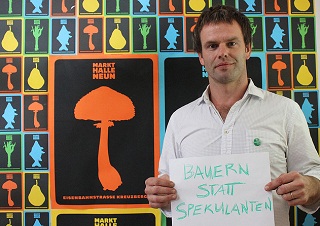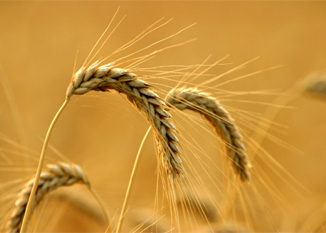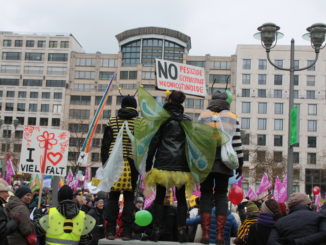On 20 April 2012 the European Commission opened its doors to discuss new strategies to support market access for small farms and local food producers. Could there be a paradigm shift? The newly formed Association of Farmers with Artisanal Meat Production (www.biofleischhandwerk.de) was invited.
By Andrea Fink-Keßler, Verband der Landwirte mit handwerklicher Fleischverarbeitung

Since the establishment of the European Economic Community in 1957 they were regarded as the rearguard of modernity: the farms and farmers who stubbornly insisted to process their products and sell them at local markets. Ignored by politics, excluded from any support and shrouded in a myth of poor hygiene, within the EU-15, small farmers were pushed to the edge.
Since the EU’s enlargement towards Central and Eastern Europe, they are back: small businesses supplying local consumers. Their contribution to rural employment can not be overlooked any longer. But even in Europe’s old centre, peasant movements against the industrialisation of agriculture resulted in farmers re-developing local and artisanal products. This, together with good marketing, resulted in consumers having more confidence in local products than in food produced on an industrial scale.
Germany is a good example to observe this trend. Abattoirs situated close to small farms are on the rise. Animal welfare is one of the reasons; particularly in connection with long and stressful animal transports. Businesses want to offer high quality meat to their clientele and this is only possible if the animals are individually slaughtered and feel no stress. In collaboration with craftsmen butchers (many farmers acquired these skills alongside their farming activities), artisanal meat products are produced on the farm. Some of them are even sold in supermarkets and restaurants!
Since the entire chain – from farm to product – is under individual responsibility this guarantees a high degree of transparency and quality. Isn’t this precisely the multi-functionality whose value and necessity has been underlined for many years?
However, small producers and local products are still being ignored and even openly discriminated against by food regulations that govern market access. Hence the Commission’s invitation to critically examine these rules and conditions from the perspective of the small and local is nothing less than a sensation. On 20th April over 400 participants from all over Europe (participation from Southern and Eastern Europe was remarkable) discussed with Commission representatives lead by Commissioner Dacian Cioloş and his colleague John Dalli from DG Sanco about ways and means of improving the political and legal conditions for small producers and local products. At the centre were the new flexibility strategies; how they are included in the CAP reform proposals and how some are already functional via the 2006 EU Hygiene regulations.
This much is certain: Under the old meat hygiene regulations no farmer or butcher would have survived an EU-wide approval of small abattoirs situated close to farms. But this conference sent a clear signal: small businesses and their local products are welcome!
The associations of small businesses and consumers are therefore called upon to use this signal and embrace flexibility, including the possibilities that the implementation of the new ELER regulation entail: the strengthening of local markets, the development of regional cooperation as well as knowledge sharing and transfer.
The conference was also covered on German television: http://www.tagesschau.de/




